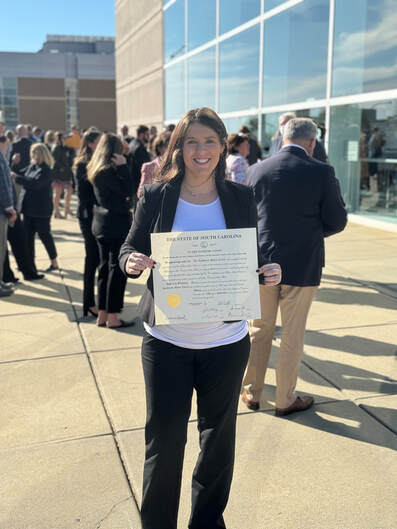|
By Associate Attorney Danielle Nodar
Starting on January 1, 2024, the Corporate Transparency Act (“CTA”) will require almost all businesses to submit a report to the Financial Crimes Enforcement Network (“FinCEN”) containing personal information about the reporting company’s “beneficial owners.” This law was enacted to help combat global terrorism and money laundering but has consequences for many small business owners who up until now have been able to maintain their personal privacy while owning and operating a business. In addition to the standard business information that one might submit to the Secretary of State, the CTA requires each business to provide personal information related to its “beneficial owners.” A beneficial owner is defined as a person who, either directly or indirectly, exercises “substantial control” over the business or who owns or controls at least 25% of the ownership interests in a business, such as stocks, voting rights, or interests in profits. A beneficial owner also includes a person in their individual capacity as managing the business, such as an LLC Manager, Board Member, or CEO, or it can be someone acting in their capacity as a fiduciary such as a Trustee of a trust that owns an interest in a business. The required filing includes the individual’s full legal name, date of birth, current residential address, an identifying number from a non-expired government ID like a US passport or US driver’s license, and a copy of the ID document. This information must be uploaded to FinCEN’s website once it goes live. Businesses that were formed before January 1, 2024, will have the entire year to submit their first report, so for existing business owners reading this, there is no need to panic! However, businesses created after January 1, 2024, must file their initial report within 90 days of the business’s formation. Starting in 2025, the initial report will be due 30 days after formation. After the initial report, businesses only have to submit information to FinCEN if there is a change to the reported information (not annually like the report to the Secretary of State). There are hefty fines associated with willfully failing to comply or falsifying information on the reports, including a $500 per day fine for a continuing violation, up to a maximum fine of $10,000, and criminal penalties that may include up to two year’s imprisonment. The CTA applies to businesses that are formed or registered to do business in the U.S. by filing a document with a government office. There are certain entities that are exempt from the CTA’s reporting requirements, such as nonprofits and large operating companies that are already subject to regulatory oversight such as publicly traded companies, insurance companies, and registered investment companies. A trust itself is not a business subject to the CTA; however, if a trust is an owner of a business subject to the CTA, the trust may need to provide identifying information about its beneficial owners to FinCEN. Jesson & Rains is working with our current and new business clients to assist with understanding and complying with the CTA’s new reporting requirements. For all new businesses formed by the firm in 2024, Jesson & Rains will submit the initial report on behalf of the business. For our business clients that are members of our Annual Business Maintenance Plan, we will submit the initial report for 2024 and can assist with filing any amended reports so long as you are a member of the Annual Plan. If you are interested in having Jesson & Rains handle these reporting requirements for you, please give us a call! More information on our Annual Plan services can be found here
0 Comments
By Shayla Martin
We are thrilled to announce the new licensure of attorney Katheryn “Katy” Currie in the state of South Carolina. Katy initially joined our team in November of 2022 with licenses in North Carolina as well as Alabama. Katy has been a dedicated and passionate advocate for her clients for several years, and her expansion into South Carolina is a testament to her commitment to providing exceptional legal services. Her experience and expertise in various areas of the law, including probate administration, estate planning, and business transactions, will undoubtedly benefit individuals and businesses throughout South Carolina. Along with Katy, our experienced legal team is ready to assist with probate matters, guiding you through the complexities of estate administration and ensuring the smooth transfer of assets to beneficiaries after the death of a loved one. Our estate planning services include wills, trusts, powers of attorneys, and advanced directives, ensuring that your assets are protected and your wishes are honored. Finally, for businesses in South Carolina, we offer a wide range of legal services, including contract drafting, business formation, and more. We're here to help you navigate the complexities of the business world while protecting your interests. Coming Soon: South Carolina construction and litigation services. We’re also happy to announce that partner Edward Jesson passed the South Carolina bar this fall and is expected to be licensed in SC early next year. By Attorney Edward Jesson
On January 5, 2023, the Federal Trade Commission (“FTC”) proposed a rule that would, with limited exceptions, bar employers from using non-compete agreement and would further require the rescission of existing non-compete agreements that were in place prior to the implementation of the FTC’s rule. The FTC’s proposed ban is limited to “pure” non-compete agreements and would likely not apply to customer/employee non-solicitation agreements or others contained in non-employment contracts, such as business sale contracts. It appears as though, from the FTC’s language, that the rule would apply to all employees and all independent contractors. While the FTC initially intended to make a final decision on the rule at some time in 2023, due to the overwhelming number of comments the agency received during the public comment period (nearly 27,000 comments) it appears as though the FTC will not be making a final decision until sometime in April 2024. Even if the rule is implemented, it is highly likely that the blanket ban on non-compete agreements would be challenged in courts throughout the country. While North Carolina has not banned non-compete agreements, its courts strongly disfavor non-compete agreements unless they are narrowly tailored and the North Carolina Court system’s treatment of non-competes is constantly evolving. North Carolina’s treatment of non-compete agreements, as well as the FTC’s proposed ban, are both good indicators of how courts throughout the country are trending in their interpretation of such restrictive covenants. If you think the FTC proposal may affect your business, or you have another non-compete related issue, the attorneys at Jesson & Rains stand ready to assist. |
Subscribe to our newsletter.AuthorKelly Rains Jesson Categories
All
Archives
July 2024
|
|
SERVICES |
SUPPORT |
©Jesson & Rains, PLLC ALL RIGHTS RESERVED.




 RSS Feed
RSS Feed

